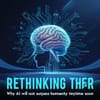The conversation around artificial intelligence often takes a dramatic turn, with many fearing that AI could eventually outstrip human capabilities and take over various aspects of life. However, this notion relies on some misconceptions about the nature of AI and its limitations.
At its core, AI is a tool designed to perform specific tasks. While it can excel in certain areas—like processing data quickly or generating creative content—it lacks the holistic understanding and emotional intelligence that humans possess. This distinction is crucial in debunking the myth of an impending AI takeover.
Critics often cite rapid advancements in technology as a sign that AI is on a trajectory to surpass human intelligence. Yet, these advancements should be viewed through a more nuanced lens. AI operates based on algorithms and data, without true comprehension or consciousness. It may seem impressive, but its abilities are fundamentally different from human reasoning and intuition.
Moreover, the fear surrounding AI often overlooks the collaboration potential between humans and machines. Rather than competing, AI can enhance our capabilities, making us more efficient and effective in various fields. This partnership can lead to innovation and growth, as we leverage AI’s strengths while still relying on our unique human qualities.
It’s important to approach the conversation around AI with a balanced perspective. Recognizing that AI is not a sentient being, but rather a sophisticated tool, can help alleviate some of the anxiety surrounding its development. Instead of fearing an AI-dominated future, we should focus on how to use this technology responsibly and creatively, ensuring that it complements rather than competes with human potential.


